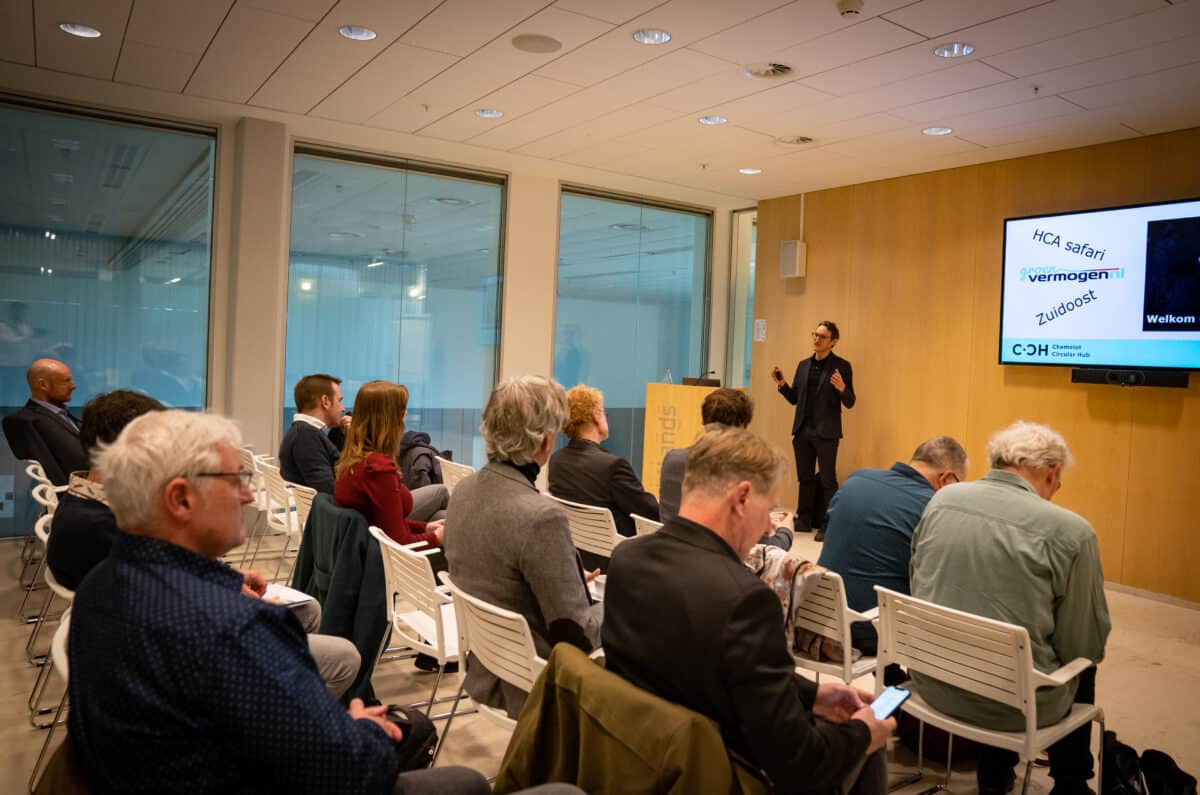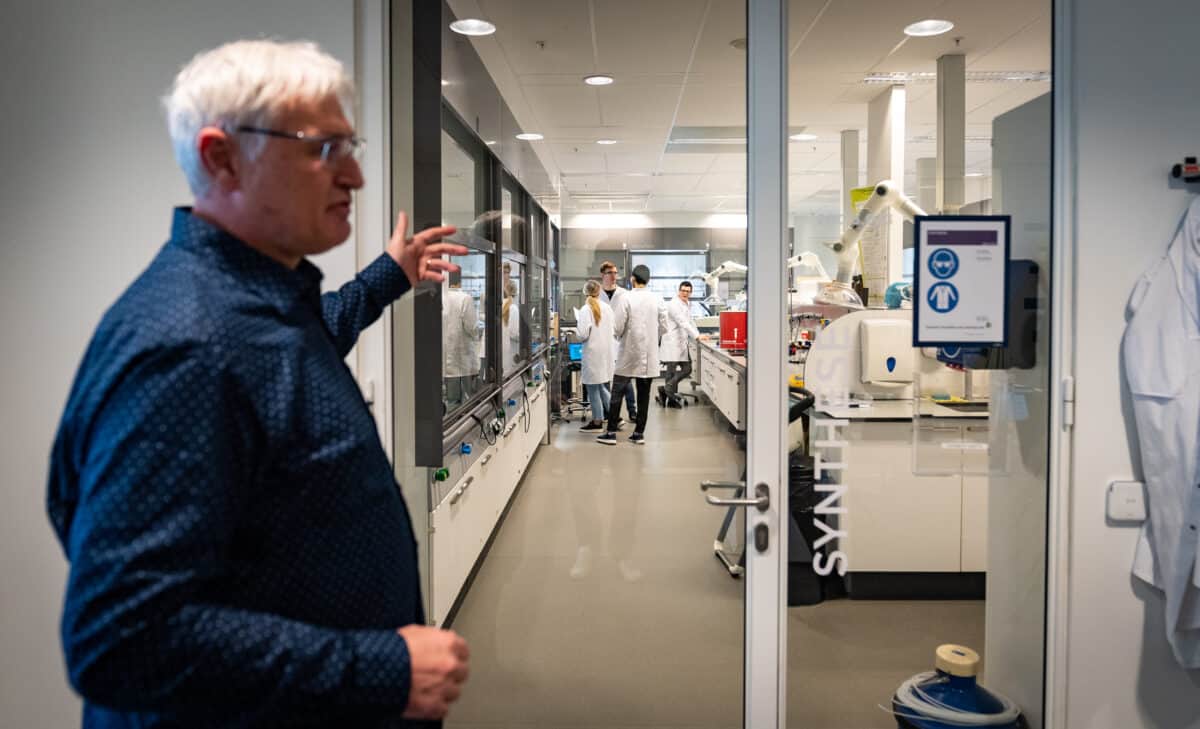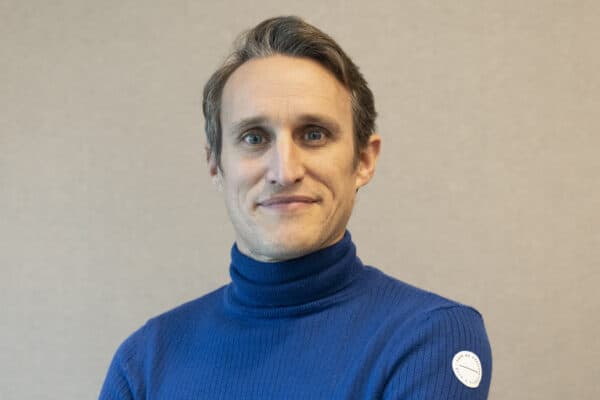‘Towards creative cross-border solutions for new transition talent’
HCA Safari South-eastern Netherlands region
In the south-eastern Netherlands, green hydrogen is not primarily regarded as an energy source. ‘This is because of the Chemelot petrochemicals industry in Sittard-Geleen,’ says regional liaison officer Björn Koopmans. ‘We’ve been using hydrogen in the manufacture of plastics there for years.’
Efficient electrolysers
In the Netherlands, the focus is on large-scale electrolysers, points out Koopmans. ‘But the current generation of electrolysers are relatively inefficient: large amounts of energy are lost when electricity is converted to hydrogen. That makes the electrification of energy-intensive industry a smarter choice. We will of course still need electrolysis, for example in balancing supply and demand on the electricity grid. That’s why it’s right that GroenvermogenNL is investing in innovations for more efficient and smaller-scale electrolysers.’
Alternative production methods
As an alternative to electrolysis, there is experimentation with alternative production methods in the south-eastern Netherlands. ‘They include CO2 emission-free plasma technology for converting methane or the gasification of wood-based waste or mixed household waste. The hydrogen released can be immediately used in chemical processes. With gasification, you use nearly all of the waste. Compared to existing waste processing, that offers great environmental advantages.’
Almost 100% of waste used
On Wednesday, 22 March, the south-eastern Netherlands was the last region to organise its Human Capital Agenda (HCA) Safari Day. At Chemelot, there was a great programme in store for our attendees presented by a range of players working with hydrogen. Alternative production methods were also featured. ‘The fact that RWE is working at Chemelot with FUREC on the construction of a system that converts non-recyclable mixed domestic waste into hydrogen rather than incinerating it is truly inspirational. That will be normal reality very soon.’

Small labour market
Koopmans has more concerns about the labour market in his region. ‘Limburg is the appendix of the Netherlands, wedged between Belgium and Germany. That means that the pool of workers is limited, because enabling people to work here from abroad is not so easy in practice. We also need to consider solutions such as automation, in order to achieve more with fewer people. Other options include ensuring study programmes are provided in English, facilitating labour migration, upskilling and retraining jobseekers and people already working in preparation for careers focusing on improving sustainability in industry and wider society. We also need to encourage young people to opt for technology and engineering from an early age. These are creative cross-border solutions for new transition talent.’
Recent R&D developments
If you are successful in finding professionals, it is a question of offering targeted training in hydrogen technology. ‘Setting up a separate hydrogen study programme is not necessarily the answer. It’s not needed, just as it isn’t for working with natural gas. It’s better if we offer knowledge about hydrogen as modules in other programmes that focus on the energy and raw materials transition. Also, since technology is developing so rapidly, it’s important to ensure that professionals stay up to date with the latest R&D developments.’

‘Enabling people to work here from abroad is not so easy in practice’
Virtual academy
Koopmans is determined to ensure that the interaction between the practical world and R&D features prominently in the roadmap. ‘That will help ensure that new technology can quickly be applied, and professionals also become acquainted with it.’ Another important principle is to avoid duplication of what already exists elsewhere. Koopmans: ‘Setting up study programmes like the ones in the northern and eastern Netherlands is not something we need to replicate. Perhaps we could accommodate them nationally as part of a virtual academy and benefit from their lecturers, practice-based research and knowledge groups by working as joint employers.’
Complementing each other
‘Developing a roadmap is not especially complex,’ says Koopmans. ‘The process is the same for every region: mapping out what is already there, then looking at what needs to be there in the future and drawing up a menu of action points to fill in the gaps. It would be great if we could all apply the same template in doing this, making it clear how the regions can work together and complement each other. Then we can all solve the puzzle of Netherlands’ hydrogen economy together.’
More on this article?

Björn Koopmans
Liaison
